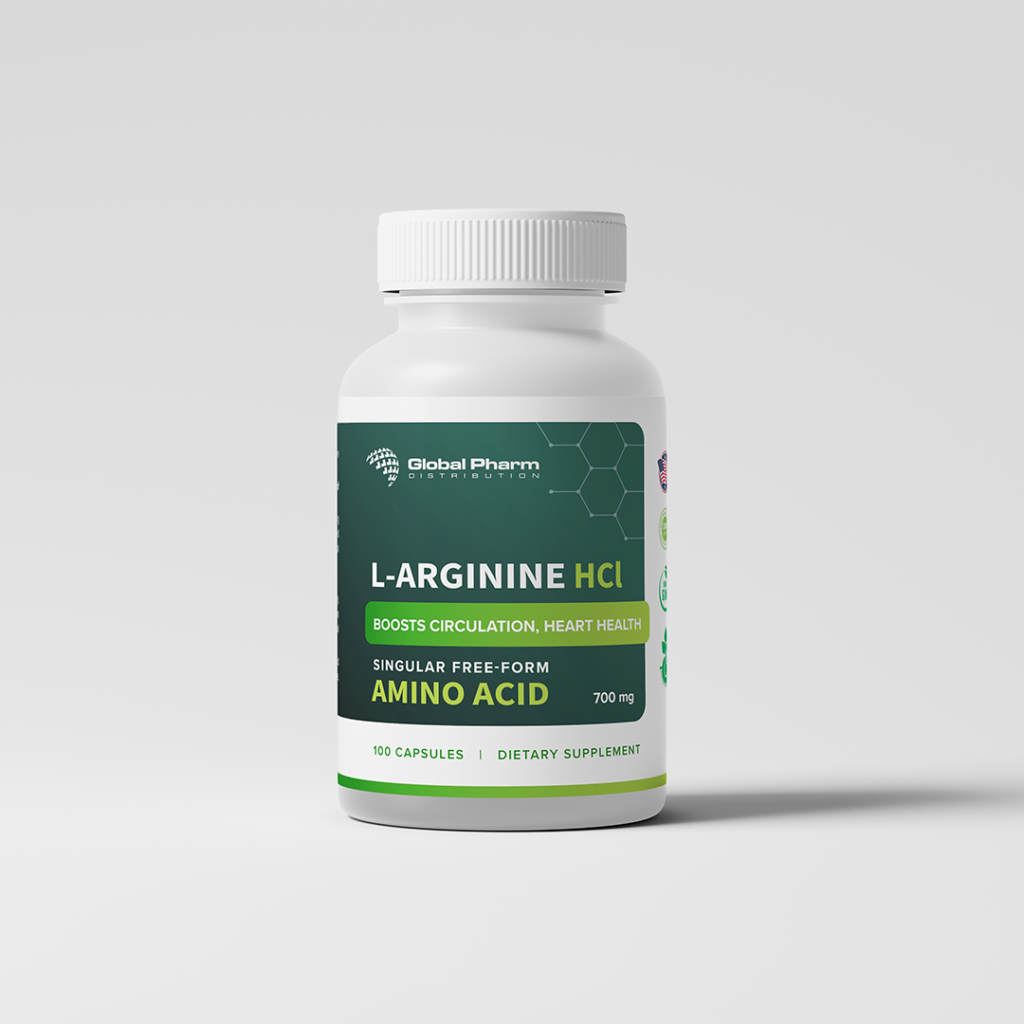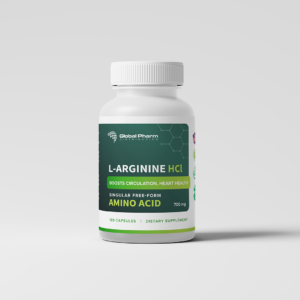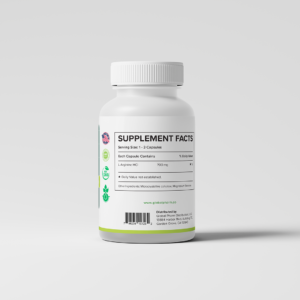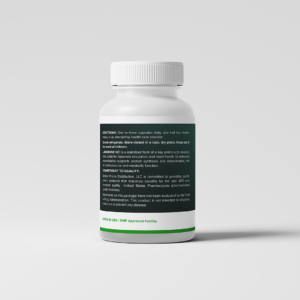Description
NDC: 53335-210-14 (100 capsules), 53335-220-18 (250 capsules), 53335-048-29 (powder)
Weight: 4 Oz
L-Arginine HCl is the hydrochloride salt form of L-Arginine, a conditionally essential amino acid that becomes vital during periods of stress, injury, or starvation, when endogenous synthesis may be insufficient. This form offers improved solubility and absorption compared to free L-Arginine, supporting endothelial function for circulatory health, promoting protein synthesis and anabolic activity—especially in surgical stress, trauma, sepsis, and catabolic states—and enhancing immune response. L-Arginine HCl also aids the urea cycle, supports athletic physique development, and contributes to wound healing and growth hormone secretion. Research indicates its role in ammonia detoxification and insulin stimulation, with potential benefits in reproduction and nitrogen retention post-trauma (e.g., Barbul 1986).
L-Arginine HCl is particularly beneficial for individuals facing metabolic stress or seeking to optimize recovery and immune health. Its synthesis from citrulline and shared transport with lysine and ornithine highlight its metabolic significance, though high liver arginase activity limits plasma levels (e.g., Wu & Morris 1998). Manufactured using premium pharmaceutical-grade materials in a GMP-approved facility in the USA, L-Arginine HCl is free of fillers, binders, or coloring agents, with no known side effects when used as directed.
Directions: Take 1-3 capsules daily or as advised by your healthcare provider. Pair with vitamins and minerals; GPD’s MVM (Multivitamin) is recommended. Powder equivalent: 1/4 level teaspoon per capsule.
Key Benefits
- Supports Circulatory Health: Enhances endothelial function.
- Promotes Protein Synthesis: Aids recovery in stress or trauma.
- Boosts Immune Function: Strengthens immune response.
References
- Barbul A. (1986). “Arginine: Biochemistry, physiology, and therapeutic implications.” Journal of Parenteral and Enteral Nutrition, NIH.
- Wu G, Morris SM Jr. (1998). “Arginine metabolism: Nitric oxide and beyond.” Biochemical Journal, NIH.
- Morris SM Jr. (2004). “Regulation of arginine availability and its impact on NO synthesis.” Current Opinion in Clinical Nutrition & Metabolic Care, NIH.
- Evoy D, et al. (1998). “Immunonutrition: The role of arginine.” Nutrition, NIH.
- Bode BP, et al. (2002). “Arginine transport in catabolic disease states.” Journal of Surgical Research, NIH.
These statements have not been evaluated by the Food and Drug Administration. This product is not intended to diagnose, treat, cure, or prevent any disease. Consult a doctor or medical professional before use, especially if you have underlying health conditions or are taking other medications.
Additional Information The following points provide insight into L-Arginine’s plasma levels and their association with various health conditions, reflecting its role in metabolism:
- Normal Range: 4.6-15 micromol/100 ml.
- Conditions Associated with Low Levels:
- Immune Deficiency Syndrome (e.g., AIDS)
- Conditions Associated with High Levels:
- Decompensated diabetes (due to increased gluconeogenesis and protein catabolism)
- Sepsis or critical illness (from elevated nitric oxide production and metabolic stress)
- Hyperammonemia (from urea cycle overload)
- Postprandial states or high-protein intake (transient elevation from dietary absorption)
Notes: L-Arginine is a conditionally essential amino acid, becoming critical during stress, injury, or starvation. It is synthesized from citrulline in the kidneys and supports the urea cycle, protein synthesis, and nitric oxide production. Its transport is shared with lysine and ornithine, and high liver arginase activity limits plasma availability. Intravenous doses (e.g., 30 g in adults) can stimulate growth hormone secretion, while it enhances wound healing and insulin response. Low levels may indicate immune compromise, as seen in AIDS, due to reduced nitric oxide or protein synthesis capacity. High levels are often linked to metabolic dysregulation or acute stress, where increased catabolism releases arginine into circulation. These associations are correlative and require further research for causal confirmation. Consult a doctor or medical professional before use, especially if you have underlying health conditions or are taking other medications.
 Global Pharm Distribution, LLC
Global Pharm Distribution, LLC




